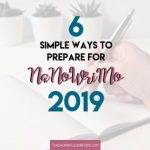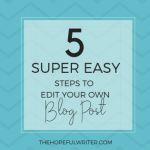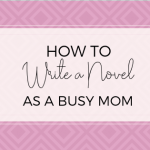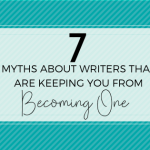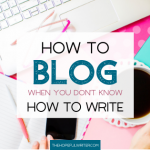Look, I know you started a blog because you love your topic, not necessarily because you love writing. People who want to learn more about fashion or DIY projects don’t care if your grammar is great or your posts are engaging, right?
Err…they might care more than you think.
People probably don’t care if you have a typo here and there or if you use a dangling modifier. But being a good writer isn’t about being a grammar snob. It’s about captivating your audience. It’s about sending a message that will be heard (or read, in this case). It’s about finding your people.
When you become a better writer, you can write gripping content that captivates your audience. You can write in a way that entices an audience to come back for more.
Becoming a better writer takes a lot of practice, but here are a few tips that you can quickly and easily implement to improve your blog posts:
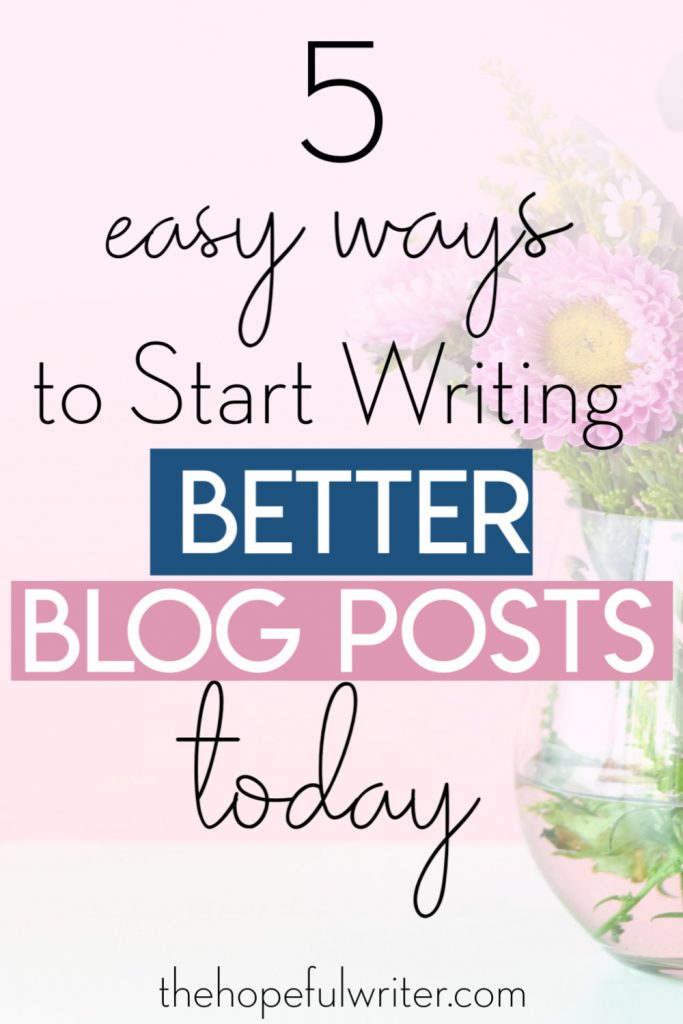
This post contains affiliate links, which means I could earn a small commission if you use the links. I only recommend a few items or services I love. See my complete disclosure.
1. Tell More with Less
One of my fiction professors in college recommended starting a story as close to the ending as possible. This totally applies to blog writing too.
Be sure to add helpful information or entertaining anecdotes, but ask yourself whether something is relevant to your post. I’ve noticed some blog posts have a lot more fluff than they need to. For example, some food bloggers describe why they decided to post a certain recipe and maybe even explain how the photoshoot went. I’ve also noticed some bloggers tell a story that has nothing to do with the recipe, then say something like, “Anyway, here’s a new recipe I’ve been working on.” This is exactly the type of thing I don’t read.
For this particular example, you could think of a story that goes along with this recipe. If you don’t have one, just don’t tell one. Rave about the recipe, then share it. Ree Drummond, aka Pioneer Woman, always manages to do this just right. Check out this post for an awesome example.
I know you’re not all food bloggers, but consider how this can apply to your niche. Do you have any habits that may be less than intriguing to your reader? What could you cut out of your posts to make them more meaningful?
2. Be Yourself
This is everything. Being authentic is one of the only things that sets you apart from all of the other people blogging about your topic.
I know I already used Pioneer Woman as an example, but I think she’s wildly successful for a reason. If you follow her on social media or read any of her blog posts, you quickly see she’s a huge goof. She seems completely different from any other person I follow. She treats her followers like they’re all her personal pals and puts her personality in every post.
When you’re writing, try to write like you would speak (using good grammar, of course). If you’re the type of person who explains a little too much or adds unnecessary details, maybe try to tone it down, but still let your personality shine through! Don’t just try to be like all the other bloggers in your niche because you think there’s a certain way people like things. BE YOURSELF. You’ll find the people who love you for it.
With that said, you don’t have to be a goof for people to like you. Everybody gravitates toward a different type of person. Fun and easygoing is the type of blogger or “influencer” I gravitate toward, but I know lots of people who love more inspirational and serious types.
Check out funcheaporfree, pinchofyum, pioneerwoman, and busytoddler on Instagram for examples of how these bloggers let their personalities shine through.
3. Learn Grammar and Punctuation Basics
First and foremost, grammar snobs are obnoxious. Don’t be a grammar snob, but don’t resist learning about it because you think it’s annoying—don’t confuse grammar with the snob!
Becoming a grammar aficionado can help in so many ways. I so badly want you to believe this that I’m making a bullet list of the reasons it can help just to make it more likely that you’ll actually read this:
- Good grammar and punctuation can help your writing flow. Writing filled with errors is like a speaker constantly peppering “um” in a speech or using a monotone voice or looking down at a paper during an entire speech. When you nail your grammar and punctuation, your readers don’t have to be interrupted every few words or try to decipher what you’re trying to say.
- Feeling confident in your grammar skills can help you feel less vulnerable. Sharing what you have to say with the world can be scary, but when you say it well, you can feel even a teensy bit more at ease.
- You’ll appear to have more authority on your topic when you use proper grammar. What I’m about to say may make me sound like a grammar snob, but I’m gonna say it anyway. If I’m reading an article or blog and run into careless grammar mistakes, a lot of times I’m just done with it. I often feel like the site isn’t legitimate if they didn’t take the time to check their work. I understand mistakes and typos happen, but when there are too many that it gets distracting, it’s a problem.
4. Think About Your Audience
You’re probably writing about your topic because you love it or you want to help people in some way. If you really want to reach people, you have to consider them. Tell stories that inspire, entertain, or help them in some way, and provide tips that do the same. Don’t publish a blog post just to get it out there. Make sure that what you write has a purpose.
Consider how much your audience knows about your topic. If your blog provides information to beginners, are you explain it in a way they’ll understand? How much do they already know about the topic? You may need to write using much more basic language than you think.
As you write, try to keep in mind how you want your readers to respond to your post. How do you want them to feel? Do you want to help them? Keep these questions in mind to try to stay focused.
One thing I like to do is just get everything out on the page, then go back and see if it is fulfilling my purpose. I ask myself if it is either inspiring, entertaining, or helpful. If something doesn’t contribute to my overall purpose, I cut it out.
5. Proofread Before You Publish.
JUST. DO. IT.
I get it—you’ve taken hours writing something and you just want to get it out there. I used to be the person who would submit something without proofreading it, but I realized this was a huge mistake. Even the best writers need to proofread, and even the most amateur writers can catch obvious mistakes.
Maybe you don’t feel confident about your writing skills, but even a quick look through can be beneficial. It doesn’t take a bachelor’s degree to notice repeated words, typos, or writing that is less than engaging.
I recommend using Grammarly for every blog post, social media post, email, and anything else you write (besides text messages because autocorrect is hilarious)! It will help you catch the mistakes you may have missed or the words you repeated wayyy too much. I go into a lot more detail about Grammarly in this post and how to use it effectively.
What are some questions you have about improving your blog? I’d love to help! Comment below.
P.S. If you need more help learning how to write blogs, check out my free 5-day email course! I dig deeper into easy ways you can improve your writing skills.

